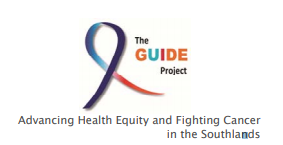Cancer Study Findings Published in National Journal

Instructors from Governors State University are even more hopeful now that “The Journal of Cancer,” a national publication, has taken notice of their hard work on a study that aims to encourage African American women who have a hereditary risk of developing breast cancer to participate in genetic counseling.
The Journal recently published an article that was guided by two University of Illinois Cancer Chicago (UICC) cancer researchers and included input from several Governors State scholars, including Professors Shirley Spencer and Giesela Grumbach.
Other Governors State faculty were:
- Social Work and Policy Expert Vickii Coffey
- Senior Lecturer Carolyn Rodgers
- Catherine Balthazar, Dean of the College of Health and Human Services
“We hope the article, which was about the development of a culturally sensitive way of providing information to people who might otherwise be hesitant to participate in genetic counseling, will move women to act,” said Dr. Grumbach, Professor of Social Work.
Doing more to promote preventative care barriers was at the core of the Governors State University–UICC Disparity Education (GUIDE) Cancer Research Training Project, which launched in 2016 with a four-year, $1.5 million grant from the National Cancer Institute.
The project paired GSU students and faculty with UICC mentors to promote community-based research that will address high cancer rates and mortality in the Southland community.
Grumbach led two focus groups with African American women who have a hereditary risk of developing breast cancer and other stakeholders. The genetic counseling option is non-invasive and the intervention seeks to inform women of what it entails to allay their concerns.
With this in mind, Governors State faculty collaborated with UICC on a Public Service Announcement (PSA) video for the project that shows the importance of genetic screening.
“The findings of the research guided the develpment of the video, which serves as a mobile device-based educational intervention,” Grumbach said.
In the video, three actresses discuss their fears of—and positive experiences with—genetic counseling.
A common theme tackled in the video is a reluctance to engage with genetic screening. Grumbach said some fear that going through genetic counseling will lead to a diagnosis of cancer.
Part of the hesistation is not wanting people to know their personal business and not trusting the medical profession for historical reasons, Grumbach.
Some of their research was about why women may attend a counseling appointment, such as health education, trust, communication with providers, empowerment, health beliefs, motivation, family support, religion, and spirituality.
Dr. Rodgers hopes the message is getting through to women reluctant to have a genetic screening done.
“The main focus now at this point is the publication piece and where the commercial is being shown," Rodgers said. "But I think a lot of African American women are more educated about breast cancer and the genetic testing that comes along with it.”
“You can do an awareness campaign all you want, but the last question is it going to connect with how people interact with doctors or how doctors interact with the patient,” Rodgers said.
Some doctors may not have the skills to communicate with every ethnic group they meet, Rodgers said, and their research “puts exposure on that and how to communicate with African American women.”
In the end, it’s all about helping women feel better educated and confident when talking with their doctor.
Dr. Spencer, a Professor of Nursing who primarily teaches doctoral and master level courses, has worked at GSU for ten years. She had a personal interest as a two-time breast cancer survivor.
She conducted nine to 10 interviews—at the Chicago Community Family Health Center on the city’s South Side – with women regarding their attitudes about genetic testing.
The importance of testing can’t be ignored, Spencer said, adding, especially if you are at high risk or have a history of breast cancer in your family. Spencer said the goal of the PSA video is to make it as real as possible, and she thinks that does come across.
“Hopefully, this drove [the idea] home,” she said.
Being published in the journal “is an excellent opportunity to share the knowledge from the research we conducted,” Spencer added.

